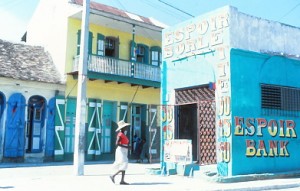
Social Justice
The values that have inspired my work from the beginning are rooted in a commitment to social justice, and that commitment is driven by an insatiable curiosity about people, history and cultures. It is difficult to conjure up the period when I first started working in radio some 40 years ago, but there was such a pinched range of voices and ideas on the airwaves — radio and tv — as well as in print in those days. As a feminist, my first impulse was to hear women’s voices and concerns aired, but I was equally interested in the voices of Blacks and Latinos, working people, the poor, older people, children, scholars, poets, musicians and artists. And I was passionate about new ideas – radical and progressive ideas. I arrived too late from Canada to participate in the Civil Rights movement, instead I witnessed — from San Francisco and Berkeley, then St. Louis — the rise of the Black Panthers and other expressions of Black Power.
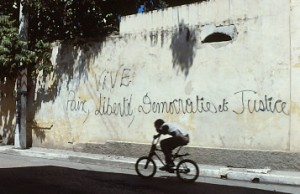
Living and working in the Bay area through the latter half of the 60’s I was also a witness to the Chicano Brown Berets, the Farmworkers Union effort and the Radical Faeries. Of course, lots of that other stuff was difficult to miss – sex, drugs & rock’n’roll. I was an activist in the women’s movement, the anti-war movement, the new environmental movement — what was generally called The New Left — and all those passionate concerns, ideas and values were rushing through my veins. A new community-media movement was emerging whereby listener sponsored radio stations and public-access cable stations provided a conduit for that expression. In St. Louis I also worked for an underground, i.e. alternative, newspaper, the St. Louis Outlaw.
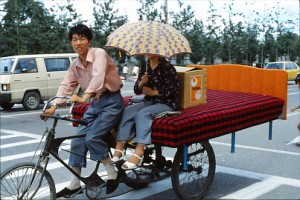
Antonio Gramsci, Juliet Mitchell, Toni Cade Bambara and the magic of Radio
I grew up in a place that was light years away from the hubs of media, news, filmmaking and entertainment, so I never could have imagined myself in journalism school or “Film” school. Nobody read books in my household and the local newspapers were dreadful. In my highschool years the most ambitious girls of my class thought of teaching and nursing. Although I flirted with the idea of teaching I wanted to break out of the expectations. My family doctor threw a wet blanket on my aspirations to become a doctor. Who would do that to a working class kid? He was the only professional I knew other than my school teachers, of course.
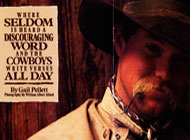
In the ’60s I drifted with the wind of radical ideas sweeping through those times and studied everything and everybody I could and loved that microphone when I picked it up. Loved interviewing people, loved the power of radio to transport, to educate, to inform. Loved the human voice articulating stories from life, powerful ideas, emotions. ( I would end up pursuing the educational part of media — putting a classroom scene in every single documentary film.)
While I was studying the ideas of Antonio Gramsci and Juliet Mitchell at Washington University in St. Louis, and my skull was cracking from the exposure to poets and novelists like Audre Lorde, Alice Walker, Paule Marshall, Langston Hughes and Ernest Gaines as well as the anthologies of Toni Cade Bambara…I was secretly falling in love with the magic of radio. Not as a listener, but as as producer. It was Lynn Phillips who first encouraged me to be the producer AND narrator for a feminist soap opera series that she wrote called “Wind of Change” which aired on KDNA, part of the Crab-Nebula Network in St. Louis. And I am forever grateful to her.

A Democracy of Reporters, Voices, Skills and Technology
Eventually I grew as a journalist — reporter and producer. It was not just my craft skills that were improving, but a grand education about the human project. Meeting and learning from streetwalkers and famous musicians, social historians and homeless women; from kids of divorced parents or undocumented workers, a voodou priestess or a Noble Prize winning scientist; from a dying person or a community organizer, a Chinese dissident artist or a survivor of torture in El Salvador — sometimes stories from broken lives, or broken systems; stories of horrible suffering, or horrible crimes; sometimes stories to inspire and transport us. Bringing diverse voices, tough stories, controversial ideas and a range of expression to the air was not just an answer to the responsibility of this treasure — our airwaves — it was also deeply meaningful and satisfying.
In the late 60’s and continuing on into the next four decades, new technologies opened up new democratic opportunities for more diversity among reporters and documentarians. Now almost everybody with access to a computer or a cellphone can bear witness, report, create and edit photos, text, and video and distribute it instantly. My career paralleled this extraordinary transformation. When I began 40 years ago, a privileged few corporations and individuals controlled media outlets and programming in television, filmmaking, and radio. Film schools were exclusive clubs. While the owners of media have concentrated even further, the web has exploded opportunities to bypass those controls. Well, perhaps that’s too idealistic. The concentration of control through Google and Apple has become our next media challenge.
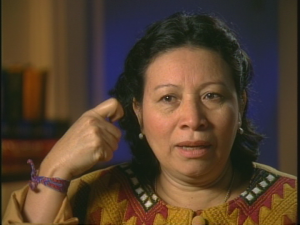
The Point is Not to Report on the world but to Change it!
When I first began to write, report and produce documentaries for radio — then television, I thought that if people have all the information they need, and deepen their critical thinking, they’ll change the world. And I thought my work could contribute to that project. Well, I have less hubris now. Hopefully, some of this work has enlarged the global conversation about our need to care for each other, tell truth to power, and create something better and more beautiful.
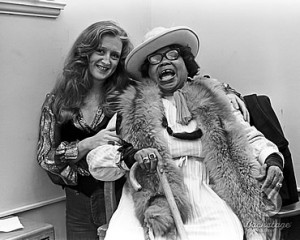
That Which Keeps Us Human Under Fire
My concerns for human rights, for the social contract, for a new vision of being, have matured alongside my fascination with the diversity of expression that defines our humanity. Whether through storytelling, poetry, making music or art or working through an idea…it is that capacity for transcendence and beauty, for living beyond the quotidian, or even beyond the forces that oppress us, that has always caught my attention and my heart. This website offers up tidbits of this project.